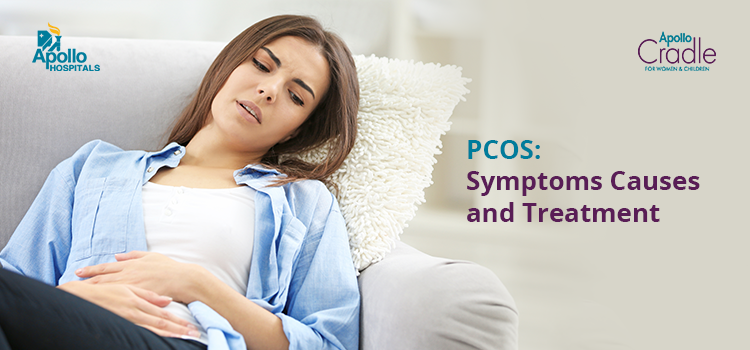What is PCOS?
Polycystic Ovary Syndrome> is a hormonal condition that is usually experienced by women between the ages of 15 and 40. This condition is caused as a result of the growth of small cysts on the ovaries that cause a hormonal imbalance. Studies show that 24% of women all around the world suffer from PCOS. Most women do not even realize that they are suffering from PCOS until diagnosed.
READ: PCOS (Polycystic Ovary Syndrome) and Diabetes
Symptoms of PCOS
The main symptoms of PCOS include:
- Irregular menstruation or no periods at all
- Acne
- Oily skin
- Male pattern balding or hair loss
- Excessive weight gain or obesity
- Excessive facial hair growth
- Infertility
If you experience one or more of these symptoms, you should visit a gynaecologist immediately and get professional advice. It is not necessary that a woman that suffers from PCOS must go through all these symptoms. She could just be infertile or have irregular periods. Similarly, if you experience even one of these symptoms, do not conclude that you have PCOS without medical proof.
One of the most common causes of female infertility is PCOS. It can cause you to develop other health problems later on in your life if you do not take care. Some of these problems include type 2 diabetes, high blood pressure, high cholesterol, heart disease and sleep apnoea.
READ: Polycystic Ovary Syndrome (PCOS)
Causes of PCOS
While the main cause of PCOS is unknown, research shows that PCOS can be caused by a variety of factors, include hereditary, environment, lifestyle, weight, etc.
- Hereditary-If a female family member, such as your sister, mother or aunt, has PCOS, you have a 50% chance of having it too. No particular gene has been found to be the cause of PCOS, but research suggests that the genetic makeup for PCOS might be more complex and consist of multiple genes.
- Insulin Resistant– Insulin keeps the glucose and sugar level in our blood balanced. If you are insulin resistant, as the name suggests, your body refuses to use the insulin available in your body to maintain your blood sugar levels. Due to the excess insulin in the body, there is an increased production of androgens such as testosterone in the ovaries. This contributes to excessive hair growth acne and irregular periods.
- Weight– Another side effect of insulin resistance is excessive weight gain, which, in many cases, leads to obesity. Due to the unhealthy diet and lack of physical activity, the level of insulin increases, resulting in PCOS.
READ: What Is Difference Between PCOD vs PCOS?
Treatment of PCOS
There is no guaranteed cure to PCOS yet. However, there are a lot of effective remedies available in order to reduce the side effects of this condition. There are a few oral medicines that can help with PCOS, such as birth control pills or long-acting contraceptives. However, exercise is the most highly recommended form of dealing with PCOS.
You can also try changing your lifestyle, activities like yoga and meditation as well as sports can go a long way in reducing your stress levels, and helping you manage PCOS symptoms effectively.

